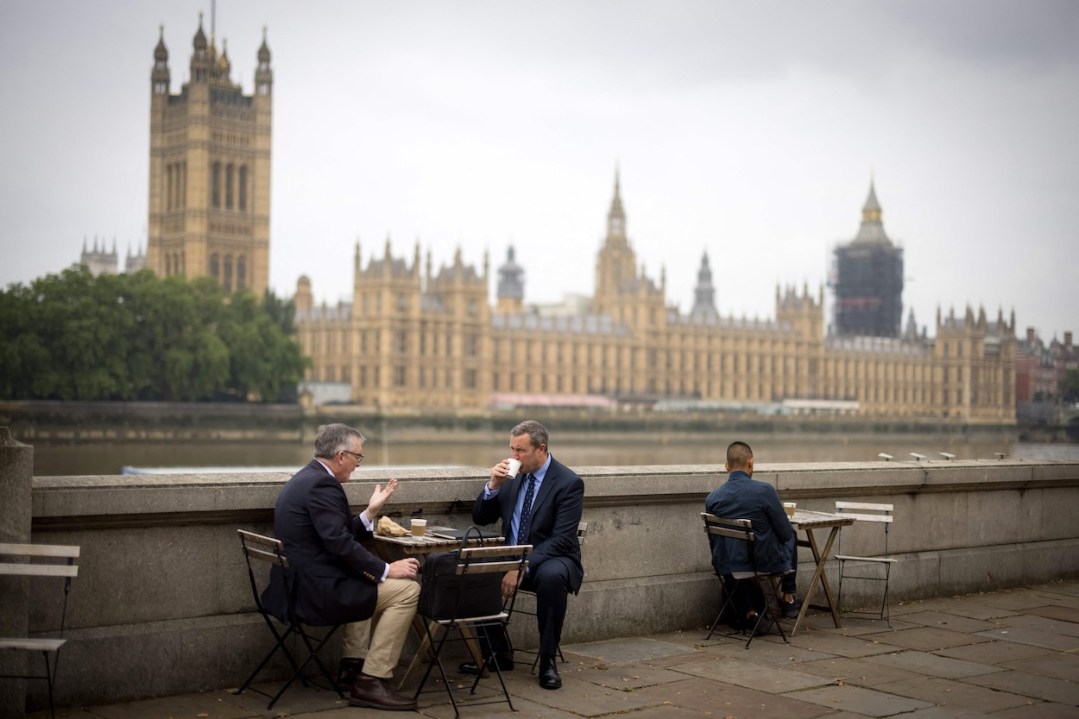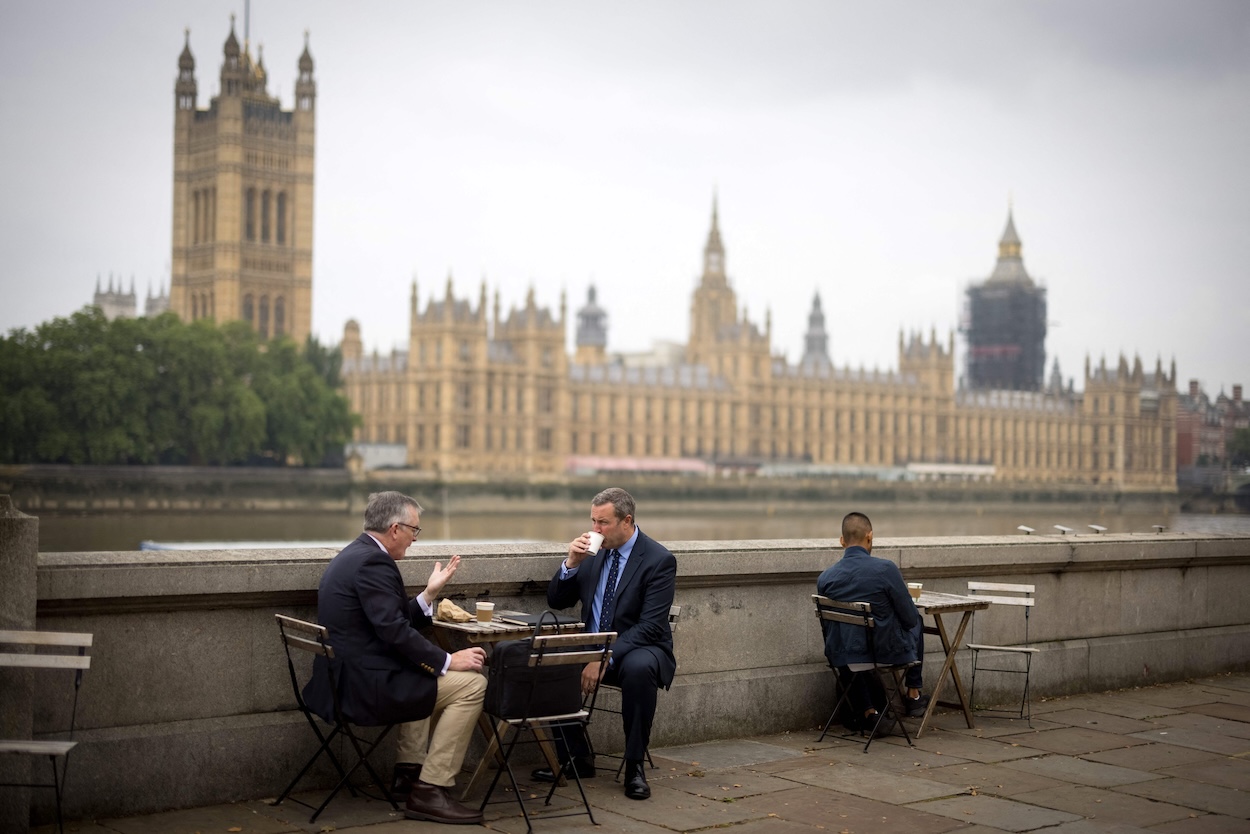I became sick of bakeries when I lived in Berlin. I alternated between a few of them, doing most of my work in a café-bakery in the then-trendy Neukölln district amid other somewhat directionless snackers and typers. After a while, I felt that commercial premises hawking cakes, pastries and cookies were no place for the would-be scholar, as I then was. I began to feel grossed out by other people’s crumbs under my laptop, depressed by the pressure, partly caused by my own boredom, to keep ordering and paying for cake and coffees. Eating cake began to seem antithetical to serious work, not its handmaiden. Eventually I discovered the charms of the Berlin State Library, where my then-boyfriend always stationed himself, and never looked back.
When I returned to London, I moved my office to the British Library’s Rare Books Room and kept it there until the library all but closed down in October 2023 after hackers destroyed its digital systems. To this day I am reluctant to place my laptop anywhere that sells food.
But perhaps the era of straightforward £4 flat white bakeries is over. A new breed of café seems to be trying hard to close the irksome gap between small-treats consumerist crumbs on the one hand and intellectual industriousness on the other. It’s as if cardamom buns and brownies have taken on the seriousness of a desperate student pursuing a thesis on Kant’s metaphysics.
To wit: Toklas, a bakery in the strange part of London between Temple and the Strand, recently advertised a ‘new series of live readings’ with audiobook producer Spiracle. This is to appeal to ‘food lovers, literature aficionados and the curious-minded’. It took me a while to get my head around its first offering: a 10 a.m. reading of Chekhov’s short story The Lady and the Dog, by the actress Diana Quick, a theatrical grande dame who played Lady Julia Flyte in the 1981 TV version of Brideshead Revisited. While the woman, once called the most beautiful in the world, reads Chekhov, breakfasters were encouraged to enjoy coffee from Brixton’s Assembly Roasters and sample from a menu of madeleines and marzipan-and-strawberry brioches.
Then there is the sweet treatification of the London Review of Books bookshop. This excellent bookshop in the shadow of the British Museum has an events calendar of talks from its in-house stable of essayists and authors, which often sell out. It has long had a café attached. But, once the café closed, an opportunity arose for a lucrative partnership between carb consumerism and garret-style bookishness.
Now there’s an outlet of St John, the Clerkenwell ‘nose-to-tail’ chain beloved by food critics and Islington types. Those in search of edgy doughnuts and Eccles cakes can enjoy them safe in the knowledge that the latest work on postcolonial theory or the 1848 revolutions in Europe is just a step away. And luckily, when the shop opens late for events (sellouts include Joe Sacco with Skye Arundhati Thomas and Jeanette Winterson), St John will be there to sell cocktails and posh snacks.
Trevor Gulliver, co-founder and CEO of St John, on the LRB opening: ‘We were curious when the London Review of Books asked us about their café at the bookshop which was closed – would we come by and take a look? One thing has led to another,’ he says, noting the ‘general delight… and the good feeling that an independent bookstore provides to many.’
I began to feel grossed out by other people’s crumbs under my laptop
I can’t say this trend is entirely unwelcome. Think of the strange jewel of Swedenborg House, near the LRB bookshop, a quiet shrine to the philosophy of the Swedish mystic Emanuel Swedenborg. It’s got his archive, a reading room, event space and, in and among the for-sale books in a library-like space with plush leather chairs, a café. There is nowhere nicer to sit and write, and there are relatively few cake crumbs. Perhaps the dominance of the tomes and the quiet industry of the archivists keeps all that under control.
And in my non-trendy part of north London, the bright spot for freelancers is Café Bicicletta at the Camden Arts Centre. To get into it, one walks through a gift shop, which sells everything from books that sell what approximates a utopia run by trans Palestinians, to tea towels adorned with mushrooms, to chunky brightly coloured earrings, to St Eval candles. There is of course an ‘exhibition space’. I march right past and into the womb of potted plants, speckled floors and overpriced flat whites that is the café. Truth be told, I’ve done some of my best work there.
At moments like these of instability, economic and wage stagnation, there is a well-documented swing to the smaller, cosier, more domestic things of life. Small treats – baked goods included – are affordable and, well, treats. Given that the watchword of the cash-stripped younger demographics is ‘treat yourself’, a distillation of ‘be kind to yourself’ and ‘you do you’, making sure you’re well furnished in madeleines while you read Proust seems on point. Perhaps the result of the fusion of croissants with high intellect will do more than sell more cakes: it’ll sell more books, and more ideas, as well.








Comments